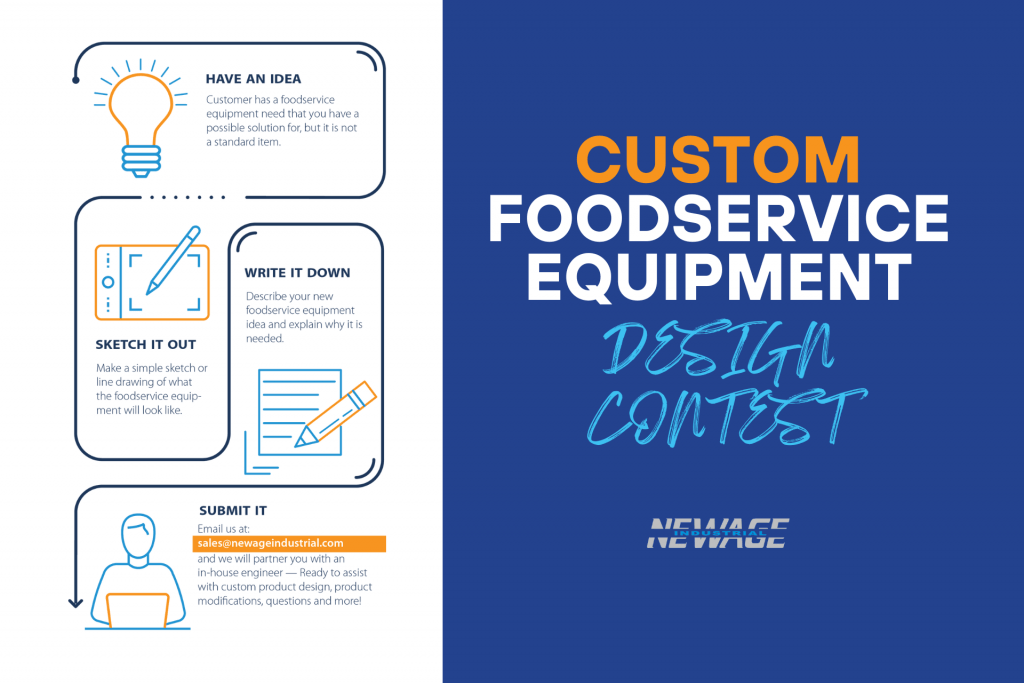
As countries around the world entered what would become the first of multiple lockdowns in early 2020, co-owner of high-end New York restaurant King, Annie Shi, knew as they closed for an indefinite amount of time in March that the next few months would be challenging. What she couldn’t know was how long it would last and how much foodservice would change.
Set against the backdrop of alarming headlines dominated by Covid-19, as restrictions eased, Shi and her partners reopened with a takeout window in June before opening for outdoor dining in July. “We had to really think through what dining at King looked like in the middle of a pandemic,” she explains. “We were all working so much, wearing masks and face shields, trying to be eloquent about food and drink. It’s a tough act… We spoke often about whether our staff felt safe enough and made adjustments wherever we could, we were doing risk calculations every day.”
On top of this, the team was dealing with pushback from guests who resented new dining rules. “That’s when my mental health felt the most battered. I had this pit of dread going into work,” she says.
Collective Covid-19 trauma
Shi’s story mirrors that of many operators in hospitality: navigating financial stresses, the stop-start uncertainty of lockdowns, additional costs associated with meeting Covid-19 regulations and concerns over staff safety and wellbeing.
Restaurant closures have left much of the workforce out of work entirely. By the end of 2020, the World Economic Forum reported hospitality and leisure industries had been “by far the worst affected”, totalling 3.4 million job losses in the US. Similarly, the UK’s Office for National Statistics reported hospitality made up one-third of national job losses.
According to UK-based community and education platform Code Hospitality’s “Happiness in Hospitality” survey, 72% of respondents said their mental health had suffered through the pandemic. This statistic can be linked to many factors including job insecurity, redundancy and loneliness. In another mental health survey from UK charity Hospitality Action, 76% of respondents said new Covid-19 restrictions – social distancing, sanitation measures, fear of infection, job loss and pressures of policing guests – were a primary cause of stress.
The situation is what Tim Etherington-Judge, founder of global industry wellness platform Healthy Hospo, calls a “toxic soup” in an industry already dealing with “sky-high mental health problems” triggered by everything from substance, verbal and sexual abuse to unhealthy work-life balance.
Hospitality workers were already “extremely vulnerable”, he explains, working in “an industry built on the back of a poorly paid workforce, with owners and operators earning tiny margins… There’s no rainy-day fund.” These issues have been compounded by “lockdowns pushing people to the edge of mental health breakdowns or beyond.” Alongside huge financial strains that lockdowns put on businesses, he adds: “Connection is a fundamental human need and they’ve removed that for many people.” While, for people in work, there’s huge pressure “to know and enforce safety protocols.”
Community and support
In response to additional Covid-19 challenges, Healthy Hospo accelerated the launch of its training app, enabling them to support people wherever they are in the world, 24/7. The platform offers self-care resources specifically targeting issues the hospitality industry faces.
Healthy Hospo isn’t alone in ramping up its support services. Alongside an uptake in employee assistance programs and chains such as Starbucks upgrading mental health benefits to offer US employees free therapy sessions, there have been concentrated efforts in building routine and regular check-ins to help out-of-work or overburdened hospitality workers feel connected and valued.
In the UK, restaurants remained closed from December to May except for delivery, takeaway, and from April outdoor dining. As well as prioritizing regular catch ups with his team, London-based chef and restaurateur Ben Tish has seen the wider community rally around its struggling members. Alongside mental health platforms like Hospitality Action coming out in full force with resources, grants and more, Tish applauds great initiatives launched by Code Hospitality. “They’ve been very supportive and created free things for people in hospitality to do, trying to keep them interested and included.”
Owner of London-based Spanish food wholesaler and tapas restaurant Brindisa Monika Linton and her teams have navigated the pandemic from both foodservice and wholesaler sides. “Anyone who touched the hospitality trade was shut down,” she says. Even as they found an alternative route to market, selling directly to consumers, there were stresses adapting to Covid-19 regulations as “the situation was constantly changing.”
Offering a constant in an ever-shifting landscape, the wholesale team’s HR manager Maddy Ruzzene started sending weekly email updates and resources. Linton continues: “The news was [too much] for some people, but they still needed information, so Maddy would send out staff updates including a summary of what was going on and [self-care] tips. No matter what was happening, you knew Maddy was going to say something on Friday.”
Similarly, in the tapas group, regular check-ins were prioritized. However, as food operations director Kelly Richardson emphasizes, long-term support is essential. “Our teams are motivated to put this behind us [but] the true impact on them mentally and financially may not show for months. It’s up to us to ensure their wellbeing.”
Safety and respect
As well as the breakthrough moment in spring when restaurant workers became eligible for vaccines in New York, a positive Shi has seen is a “long-overdue reevaluation of the relationship between guest and server.” New York City had built up a culture around a “stifling and incorrect belief that the guest is always right, sometimes resulting in bullying behavior… People were already fed up with it and then the stakes became so high during Covid.”
In the early days, “there was a lot of fear among restaurateurs that if you ask guests to put on masks, they wouldn’t dine with you.” However, says Shi, “the rules of the game had changed” and safety emphasized the need for behavioral change. Although it was tough at times to find their voice, she adds, “there should be dignity in the job of serving and dignity really comes from mutual respect.”
Confidence to take opportunities
“From a business perspective, the industry is coming out of the pandemic, with confidence building every week. Operators are looking at the opportunities to open up, and foodservice equipment sales are growing again,” says Keith Warren, chief executive of Foodservice Equipment Association (FEA). “However, it’s still a very tough market. Manufacturers are working back up from a drop of 90% in sales last May. Most are trading at between 50%-65% of pre Covid 19 levels. There are also major supply chain problems, caused by a combination of delays at borders, raw material and components shortages, and price increases.”
As the industry emerges from the pandemic and a period of genuine challenge, what is the appetite for investment in new equipment?
“The market is a mixed bag at the moment: some operators are spending on new equipment, some are repurposing from closed sites, and some are using second-hand. We are seeing signs of significant spending in the channels that have done well, and which are anticipated to do well,” says Warren.
“All of which means suppliers are developing new strategies. For example, many are selling different products into the market and are looking for new channels, such as the public sector. Quite a few are also investigating markets outside of foodservice.
Because different dealers and consultants work in different sectors of the market, manufacturers who are looking at new revenue streams are developing new relationships. Hopefully these new partnerships will lead to more business growth.”
On the way ahead, Warren says new markets and opportunities will arise; they always do after a period of crisis. “We need to stay positive. We are on the way back – every recession causes casualties, but the foodservice industry will emerge strongly, with new offerings for consumers and new revenue streams. In the 1980s it was QSR, in the 1990s it was pubs, more recently it was casual dining that emerged as the new sector champions. There will be new innovations and concepts – we need to be aware of the opportunities when they arise.”
Rebuilding and rebalancing
As the industry picks up the pieces, Bettina von Massenbach FCSI of Germany-based foodservice consultancy Oyster Hospitality Management says operators who have supported staff will be in a stronger position moving forward. “Coronavirus has shown us our blind spots and one of them, for quite a few operators in the market, has been our treatment of our people,” says von Massenbach, who also stresses that building a supportive corporate culture is a huge factor in keeping people in the industry and ensuring they feel comfortable and willing to work. “If you’re not in contact with your people, you don’t know where they stand, their issues. If you don’t have that bond, why should they stay with you? Without that connection, we don’t have teams, without which we can’t do our jobs.”
As an industry that prides itself on creating “moments of happiness,” which many operators and staff haven’t been able to do for months, von Massenbach says we must rebuild self-esteem and “make our people aware of their skills.” In a recent McKinsey report on five soft skills essential for business up to 2030, from problem solving to collaboration she explains: “They’re all built up in hospitality on a daily basis, which is just amazing.”
Another blind spot? Money. To combat systemic financial stresses, “Operators need to have the confidence to put up prices so they can pay fair wages. They need to overcome the fear people won’t pay,” she concludes.
SSA president Ken Schwartz FCSI based in Florida, advocates readdressing pricing and profit to tackle long-running financial issues exacerbated by Covid-19. “A lot of restaurants operate on very low or no profit margins,” he explains. Considering everything from “the capitalization required to buy new inventory” to additional costs of sanitation supplies, “It’s a big uphill climb for restaurateurs to figure out financially what it’s going to take to reopen. And you can’t do it on a shoestring.
“At some point, profit in the foodservice industry became a bad word… But you’ve got to run at a profit so you can reinvest and reinvent yourself,” says Schwartz. Even small things make a difference. “Pare down your menu, you’re going to be short-staffed, you’re not going to have as many guests. Consider cutting the protein on your plate by 15-20% and increase the price 5-10%. Nobody is really going to notice, but those incremental percentages can be the difference between profit and losing money.”
If there’s one thing the pandemic has proved, it’s the importance of hospitality. “Everybody is desperate to get back to the social situations hospitality provides,” says Healthy Hospo’s Etherington-Judge. There’s an opportunity to rebuild a more sustainable and fairer industry for everyone, but “it’s going to take a lot of compassion from all sides; from diners, from operators and from staff. We all need to show what makes us great as humans and work towards a collective good.”
Amy Snelling




